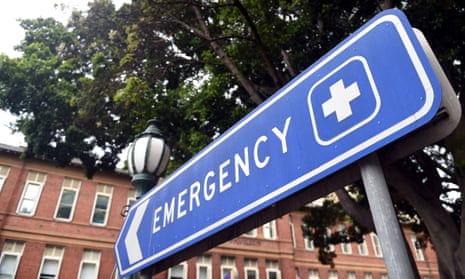A lot of people we all know have had Covid-19. Some of them will have died. Others among them will now have the “long” version of the virus – flattened by a debilitating tail that leaves them foggy-brained, weak-bodied and short of breath. Others – perhaps most of those fully vaccinated – might have escaped with little more than regular cold or flu symptoms.
For the many who have experienced such an escape, that is wonderful. But that does not justify some national utilitarian shift of emotional consciousness away from those who continue to suffer and die terrible deaths at alarming rates (check the daily numbers).
It is true that, led by the (bipartisan) imperatives of electoral politics and liberated markets, Covid has been swept to the side of public consciousness in a way that we might not have imagined possible 12 months or two years ago when every infection, every sorrowful death, was a major daily news event.
Back then the “let-her-rip-ers” remained the outliers on public health policy. Now, with the opening up late last year amid triple- and quadruple-vaccination (and with the most vulnerable people still dying in record numbers) they are smugly in a “what was all that lockdown nonsense about?”-camp, even though tens of thousands more Australians and globally millions would have perished had their urgings been followed.
I now hear all sorts of people saying “let’s just get on with it” and “this is the new normal” and “we can’t let the virus stop us again” – “go out, mingle and party – it’s nothing more than a mild flu”. Well, for the greatest number that is true. But that attitude is also a veneer, a comforting and emotionally protective let’s not look down there group-forgetting, if you like, of the immense suffering beneath (Australia is nothing if not historically adept at such great forgetfulness).
We’ve all taken our chances. As a healthy – though not exactly old but hardly young – person, susceptible to pneumonia, I have never seen – as many do – acquiring Covid as “inevitable”. I took as many precautions as possible: masks on public transport and in shops, avoiding big social gatherings and events, and for the most part, interstate travel. Watching two of my young, strong and healthy kids suffer terribly with it (there are few worse feelings of parental helplessness than hearing your child crying in anguish from their isolated bedroom until they must be rushed to hospital) made me even more determined not to acquire the virus.
Of course, I’d read about the Covid emergency stations at our public hospitals. But it’s not something you experience unless you have to. And when you do, it stays with you: the symphony of hacking coughs, the collective rasping of breath, moaning and tears, the ramped-up ambulances and makeshift emergency admittance bays as overworked medical staff do their best to fight what is now the publicly unsavoury hidden pandemic.
This made me more cautious.
Still, I got it. And seven days into my isolation, now is the first time the fog in my head has shifted sufficiently for me to concentrate on anything more than football replays and talk radio (both have propelled me into deep sleep). The symptoms were not mild. At times they were vaguely frightening. I hate to think how I’d fare were I a decade or two older. I don’t want to get it again. And I won’t accept the inevitability of doing so. I’ll keep taking all the precautions.
The symptoms are easing. But as they do I’m as mindful as ever of the suffering below the public/PR radar and of the numbers (17 one day, perhaps 24 the next, then 28 or 27) that slip further, daily, down the news lists.
Enjoy the party. Celebrate at the match. Kiss-kiss at the opening night, if you must.
For yes, life is for the living. But not only if they are young and healthy and privileged.

